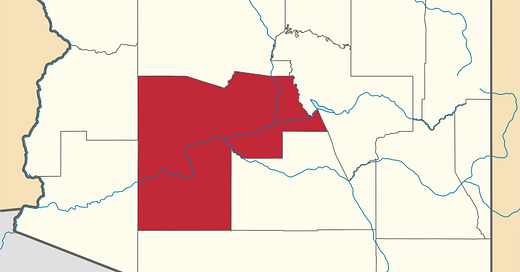Health officials in Maricopa County, Arizona, along with state and federal partners are responding to the detection of avian influenza in a small number of animals at the Wildlife World Zoo, Aquarium & Safari Park in Litchfield Park near Phoenix.
Testing performed by the Arizona Department of Agriculture determined the animals were likely ill from H5N1 avian flu.
The Maricopa County Department of Public Health (MCDPH) is working with the zoo to identify and contact staff and volunteers who are considered to be at higher risk from close, prolonged contact with the infected animals.
“People who have job-related exposures to infected animals, especially close prolonged exposure, are at higher risk of infection,” said Dr. Nick Staab, assistant medical director at MCDPH. “Public health’s recommendations are intended to reduce the risk to those who have had direct contact with infected animals and to prevent further exposure,” added Dr. Staab.
In addition to MCDPH providing monitoring and post-exposure prophylaxis (i.e., steps to prevent illness once exposed) to staff and volunteers with close contact to sick animals, Wildlife World Zoo has also put guest activities with direct animal contact on hold temporarily. The zoo is implementing other increased health and safety precautions to protect animals, staff and guests, until animal health improves.
"While we are deeply saddened to report the loss of a few cherished animals, we are grateful that the impact was limited thanks to our swift response, robust biosecurity protocols, and the invaluable support of Maricopa County Department of Public Health and state and federal agencies,” said Kristy Hayden, president of Wildlife World Zoo. “Our team worked diligently to contain the situation, and we remain committed to the health and safety of our animals, staff, and visitors."
Subscribe to Outbreak News TV on YouTube
Avian influenza H5 is a novel influenza A virus that primarily affects birds. It has previously been detected in Arizona, including a commercial poultry farm in Pinal County and a backyard flock in Maricopa County.
Although human infections with H5 are rare, most human infections have occurred after unprotected exposure to sick or dead infected animals or their environment. H5 infection in people can range from mild (upper respiratory symptoms, conjunctivitis/pink eye) to severe (pneumonia, multi-organ failure, and death). There is currently no evidence of human-to-human transmission of H5, and the overall risk to the general public remains low.
To reduce the risk of infection, people should not consume unpasteurized (raw) dairy products and should avoid unprotected contact with sick or dead animals and their droppings or bedding.





